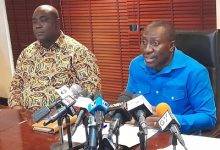President Nana Addo Dankwa Akufo-Addo, as part of the obligations imposed on him by the1992 Constitution, delivered the State of the Nation Address (SONA) to Parliament in Accra on March 30, 2022.
The obligation specifically imposed by Article 67 is meant to inform the people about the economic, social and financial state of the country involving issues which have significant impact on the development of the country and in turn affects the well-being and welfare of the people.
Different perspectives on the Wednesday SONA have been given by various sources and each perspective is based on issues those sources have interest in.
Once such views are devoid of propaganda and mischief, a critical look at them would reveal truths that can help others acquire one or two points to use alone or add to their own as yardsticks to judge whether the SONA was on point or out of touch with reality.
The Ghanaian Times wishes to state that once the SONA touched on happenings in the country, it is an occurrence to look at, raise issues and ask the relevant questions.
It is of significance President Akufo-Addo acknowledges, for instance, that there is anxiety in the country.
The anxiety stems from many happenings directly and indirectly affecting the people, including unbridled rising prices of goods and services, particularly the prices of petroleum products and food, as well as lorry fares.
What worsens the situation is that while income levels remain the same, prices are rising.
It means the value of incomes is falling, the result of which is that purchasing power has fallen.
Once the purchasing power falls, what is left to do is to agitate for more income and more income means increased budgets for the government and private sector employers, who are mostly producers of goods.
Maybe in such a situation, formal-sector workers, whether as government workers or those in the private sector, may be cushioned in a way, but it is very difficult for others like petty traders and artisans.
These are people who have no safety nets to fall on, meaning that they have to generate all the income they would need to cater for themselves and others if they have dependants.
Elsewhere there are interventions that cater for such people but due to financial constraints, the Ghanaian government cannot introduce those measures here, yet there is the need to think of these people as they are also citizens who should enjoy some goodies from the state.
The anxiety is worse among the unemployed.
What all these means is that the measures the government has put in place to solve the problems in the country must work.
The Ghana Beyond Aid agenda in particular must work as that would help the country to be self-reliant to a large extent.
There is no doubt that some thinking went into the concept before it was adopted as a plan to implement but it must be evaluated at intervals for it to march the times.
Ghana Beyond Aid in substance means that at a point, the country must raise more revenue and rein in expenditure to reduce borrowing both internally and externally.
But that also calls for change in government planning and attitude among the populace with regard to paying of tax, particularly among petty traders and artisans.
All these persons must be orientated to understand the need to pay tax as taxes are used in other countries to develop them.
Days ago the Ghanaians Times appealed to Ghanaians to support the government to succeed and recognise the fact that no government succeeds without the assistance of its citizens.
This paper would, for ever, stand by that appeal.
The measures the government hopes to adopt to solve the hardship in the country must work and the result must be tangible enough so that every Ghanaian would have the basis to rejoice about them.




